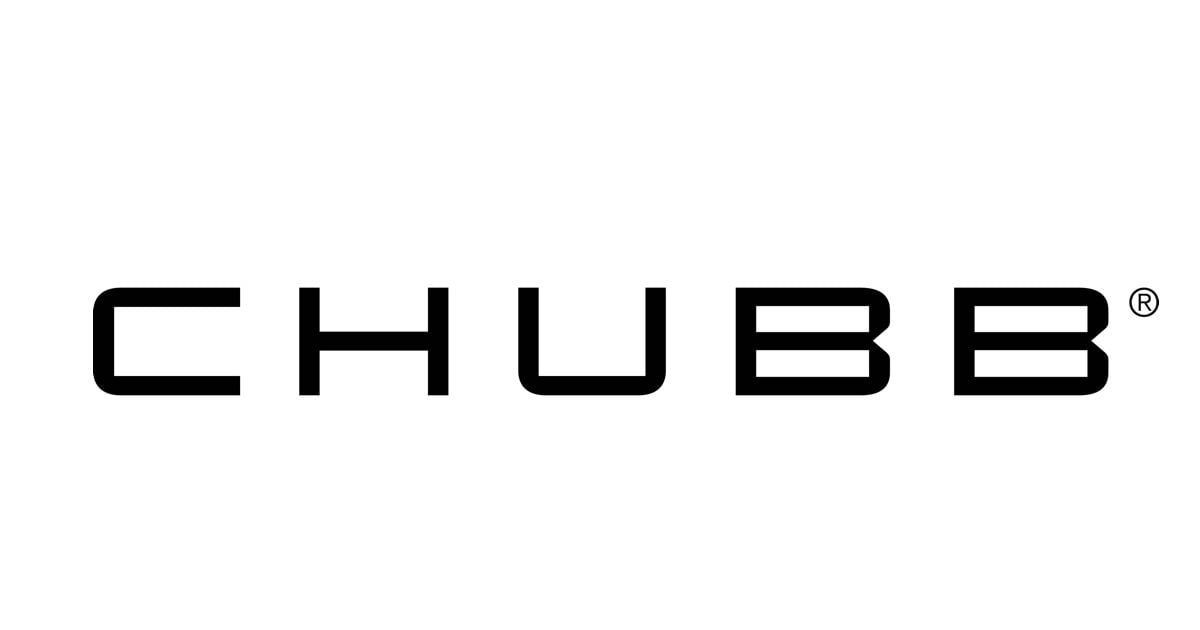Arizona’s mild winters make it an attractive location for those tired of snowy weather in other parts of the U.S. If you own a home in Arizona, you’ll want to make sure it’s properly insured. NerdWallet analyzed rate and policy information from companies across the state to determine the best homeowners insurance options in Arizona.
Note: Because of underwriting practices and market volatility, some companies in this article may no longer write new policies in your area.
The best homeowners insurance in Arizona
If you’re looking to buy homeowners insurance from a well-rated national brand, consider one of these insurers from NerdWallet’s list of the Best Homeowners Insurance Companies.
| Company | NerdWallet star rating | Average annual rate |
|---|---|---|
| State Farm | 5.0 NerdWallet rating | $915 |
| Chubb | 5.0 NerdWallet rating | $1,435 |
| Farmers | 5.0 NerdWallet rating | $2,110 |
| American Family | 4.5 NerdWallet rating | $1,100 |
| Nationwide | 4.5 NerdWallet rating | $1,460 |
| Country Financial | 4.5 NerdWallet rating | $2,710 |
| USAA* | 5.0 NerdWallet rating | $1,085 |
| *USAA homeowners policies are available only to active-duty military members, veterans and their families. | ||
More about the best home insurance companies in Arizona
See more details about each company to help you decide which one is best for you.
State Farm
5.0
Coverage options
Discounts
NAIC complaints
As America’s largest insurer, State Farm stands out for its long list of coverage options. Its policies generally include extra dwelling coverage in case it costs more than expected to rebuild your home after a covered disaster. You may also be able to add coverage for things like identity theft, damage from backed-up drains and personal injury liability.
State Farm offers a free Ting device as a perk for home insurance policyholders. Ting is a smart plug that monitors your home’s electrical network to help prevent fires.
Learn more with our State Farm homeowners insurance review.

Chubb
5.0
Coverage options
Discounts
NAIC complaints
Chubb generally serves affluent policyholders with high-value homes, offering lofty coverage limits and plenty of perks. For example, the company covers water damage from backed-up sewers and drains, and it pays to bring your home up to the latest building codes during reconstruction after a claim. (Many insurers charge more for these types of coverage.)
Arizona homeowners can also sign up for free Wildfire Defense Services. These services include personalized recommendations for protecting your home and deployment of firefighters to your house if a wildfire is approaching.
Learn more with our Chubb homeowners insurance review.
Farmers
5.0
Coverage options
Discounts
NAIC complaints
Homeowners policies from Farmers may include two valuable types of insurance: extended dwelling and replacement cost coverage. Extended dwelling coverage gives you extra insurance for the structure of your house, while replacement cost coverage offers higher reimbursement for stolen or destroyed belongings.
Some Farmers policies also come with perks that can save you money. For example, with claim forgiveness, Farmers won’t raise your rate for a claim as long as you haven’t filed one within the past five years.
Learn more with our Farmers homeowners insurance review.

American Family
4.5
Coverage options
Discounts
NAIC complaints
Founded in Madison, Wisconsin, American Family receives fewer consumer complaints than expected for a company of its size. You may be able to customize your policy with optional add-ons such as identity theft, equipment breakdown or service line coverage, which pays for repairs to water, power or other underground lines that run to your house.
Homeowners may be able to save on their premiums by installing smart-home devices, bundling multiple policies or setting up automatic payments.
Get more information in our American Family homeowners insurance review.

Nationwide
4.5
Coverage options
Discounts
NAIC complaints
Nationwide’s standard homeowners policies include ordinance or law coverage, which pays to bring your home up to the latest building codes after a covered claim. They also include coverage for unauthorized credit or debit transactions. For an extra cost, you may be able to add coverage for things like water backup, identity theft and stronger materials to replace your roof.
The Nationwide website offers plenty of ways to manage your policy, including filing and tracking claims, paying bills and getting quotes.
Learn more with our Nationwide homeowners insurance review.

Country Financial
4.5
Coverage options
Discounts
NAIC complaints
Country Financial has three levels of homeowners coverage to help you choose the package that’s best for you. You may want to add extra coverage for the structure of your home in case inflation drives up the cost of rebuilding more than you expect.
Country Financial sells homeowners insurance through local representatives. That has led to mostly happy customers — the company has drawn far fewer complaints than expected to state regulators.
Learn more with our Country Financial homeowners insurance review.

USAA
5.0
Coverage options
Discounts
NAIC complaints
USAA sells homeowners insurance to veterans, active-duty military members and their families. If that description fits you, you may want to consider a USAA policy — the company’s homeowners insurance has certain features that other insurers may charge extra for.
For example, USAA automatically covers your personal belongings on a “replacement cost” basis. Many companies pay out only what your items are worth at the time of the claim, which means you may not get much for older items. USAA pays enough for you to buy new replacements for your stuff.
Learn more in our USAA homeowners insurance review.
How much does homeowners insurance cost in Arizona?
The average annual cost of home insurance in Arizona is $1,530. That’s 16% lower than the national average of $1,820.
In most states, including Arizona, many insurers use your credit-based insurance score to help set rates. Your insurance score is similar but not identical to your traditional credit score.
In Arizona, those with poor credit pay an average of $3,125 per year for homeowners insurance, according to NerdWallet’s rate analysis. That’s 104% more than those with good credit.
Average cost of homeowners insurance in Arizona by city
How much you pay for home insurance in Arizona depends on where you live. For example, the average cost of homeowners insurance in Phoenix is $1,890 per year. In Tucson, homeowners insurance costs about $1,375 per year, on average.
| City | Average annual rate | Average monthly rate |
|---|---|---|
| Apache Junction | $1,575 | $131 |
| Avondale | $1,550 | $129 |
| Buckeye | $1,475 | $123 |
| Casa Grande | $1,590 | $133 |
| Chandler | $1,515 | $126 |
| Flagstaff | $1,505 | $125 |
| Gilbert | $1,485 | $124 |
| Glendale | $1,670 | $139 |
| Goodyear | $1,465 | $122 |
| Kingman | $1,425 | $119 |
| Lake Havasu City | $1,450 | $121 |
| Laveen | $1,650 | $138 |
| Maricopa | $1,525 | $127 |
| Mesa | $1,615 | $135 |
| Peoria | $1,505 | $125 |
| Phoenix | $1,890 | $158 |
| Prescott | $1,465 | $122 |
| Queen Creek | $1,470 | $123 |
| San Tan Valley | $1,500 | $125 |
| Scottsdale | $1,660 | $138 |
| Sierra Vista | $1,395 | $116 |
| Surprise | $1,455 | $121 |
| Tempe | $1,670 | $139 |
| Tucson | $1,375 | $115 |
| Yuma | $1,370 | $114 |
» MORE: What’s the average cost of homeowners insurance?
The cheapest home insurance in Arizona
Here are the insurers we found with average annual rates below the Arizona average of $1,530.
| Company | NerdWallet star rating | Average annual rate |
|---|---|---|
| State Farm | 5.0 NerdWallet rating | $915 |
| American Family | 4.5 NerdWallet rating | $1,100 |
| Farm Bureau Financial Services | 3.5 NerdWallet rating | $1,165 |
| Auto-Owners | 4.0 NerdWallet rating | $1,225 |
| Chubb | 5.0 NerdWallet rating | $1,435 |
| Nationwide | 4.5 NerdWallet rating | $1,460 |
| USAA* | 5.0 NerdWallet rating | $1,085 |
| *USAA homeowners policies are available only to active-duty military members, veterans and their families. | ||
» MORE: The cheapest homeowners insurance
What to know about Arizona homeowners insurance
Arizona faces certain types of natural disasters that could damage your home. Here’s how to make sure you have the right coverage.
Floods
Arizona might not be the first state you think of when you picture flooding, but it does happen, especially during the monsoon season between June and September. In a strong thunderstorm, dry ground can quickly become oversaturated, resulting in a flash flood.
If floodwaters damage your house, your homeowners insurance policy generally won’t cover it. Instead, you’ll need separate flood insurance. Most people get coverage through the federal government’s National Flood Insurance Program, but you can also shop around with private providers. Learn more about private flood insurance.
You can check your home’s risk of flooding by entering your address into the Federal Emergency Management Agency's flood maps or visiting RiskFactor.com, a website from the nonprofit First Street Foundation.
» MORE: How to choose the best flood insurance
Earthquakes
Arizona typically experiences hundreds of earthquakes each year, several of which are strong enough to feel. However, most homeowners insurance policies won’t cover earthquake damage. You can buy separate earthquake insurance to pay for damage to your home from the shifting earth.
Wildfires
Like many other Western states, Arizona is at risk for wildfires that can threaten homes. Standard homeowners insurance policies cover damage from fire, including wildfires.
Because a fire could destroy your home, you’ll want to make sure you have enough coverage to rebuild it completely. That means checking your dwelling coverage limit. Your insurance agent can help you choose the right amount.
» MORE: Home insurance calculator: Estimate your rate
Arizona insurance department
In Arizona, the Department of Insurance and Financial Institutions oversees the state’s insurance industry and provides consumer protection. You can use the site to file a complaint against your insurance company or learn more about different types of insurance. You can reach the agency at 602-364-3100.
Looking for more insurance in Arizona?
-
Cheap car insurance in Arizona.
-
Cheapest car insurance in Phoenix.
-
Best Medicare Advantage plans in Arizona.
Amanda Shapland contributed to this story.
NerdWallet averaged rates for 40-year-old homeowners from various insurance companies in every ZIP code across the state. All rates are rounded to the nearest $5.
Sample homeowners were nonsmokers with good credit living in a single-family, two-story home built in 1984. They had a $1,000 deductible and the following coverage limits:
-
$300,000 in dwelling coverage.
-
$30,000 in other structures coverage.
-
$150,000 in personal property coverage.
-
$60,000 in loss of use coverage.
-
$300,000 in liability coverage.
-
$1,000 in medical payments coverage.
We made minor changes to the sample policy in cases where rates for the above coverage limits or deductibles weren’t available.
We changed the credit tier from “good” to “poor,” as reported to the insurer, to see rates for homeowners with poor credit.
These are sample rates generated through Quadrant Information Services. Your own rates will be different.
Star rating methodology
NerdWallet’s homeowners insurance ratings reward companies for customer-first features and practices. Ratings are based on weighted averages of scores in several categories, including financial strength, consumer complaints, coverages, discounts and online experience. These ratings are a guide, but we encourage you to shop around and compare several insurance quotes to find the best rate for you. NerdWallet does not receive compensation for any reviews. Read our full homeowners insurance rating methodology.
Complaint methodology
NerdWallet examined complaints received by state insurance regulators and reported to the National Association of Insurance Commissioners in 2019-2021. To assess how insurers compare to one another, the NAIC calculates a complaint index each year for each subsidiary, measuring its share of total complaints relative to its size, or share of total premiums in the industry. To evaluate a company’s complaint history, NerdWallet calculated a similar index for each insurer, weighted by market shares of each subsidiary, over the three-year period. NerdWallet conducts its data analysis and reaches conclusions independently and without the endorsement of the NAIC. Ratios are determined separately for auto, home (including renters and condo) and life insurance.





